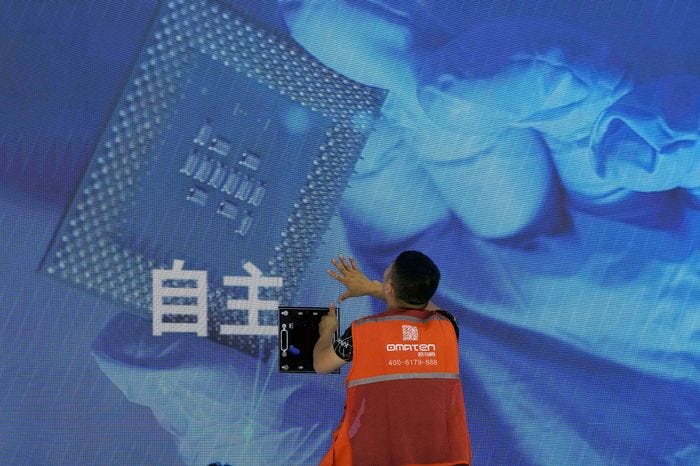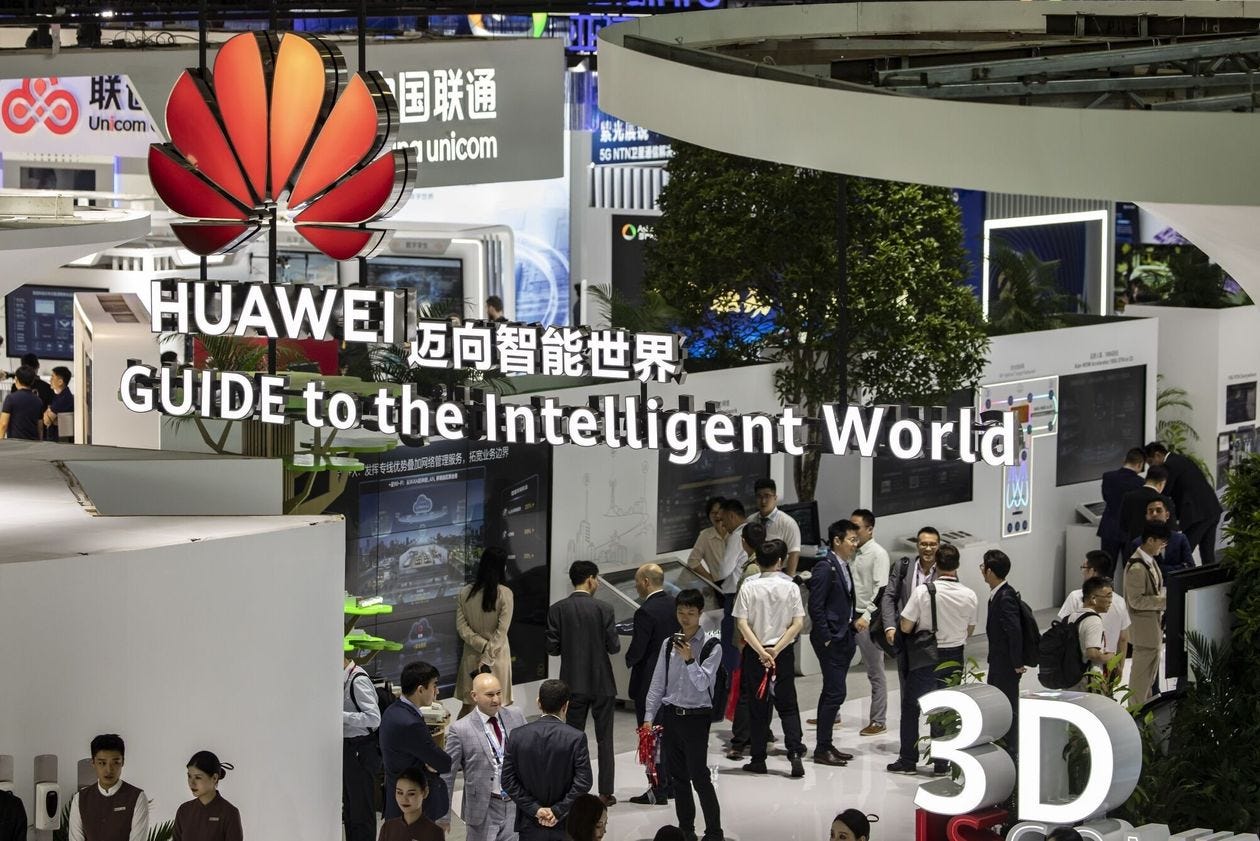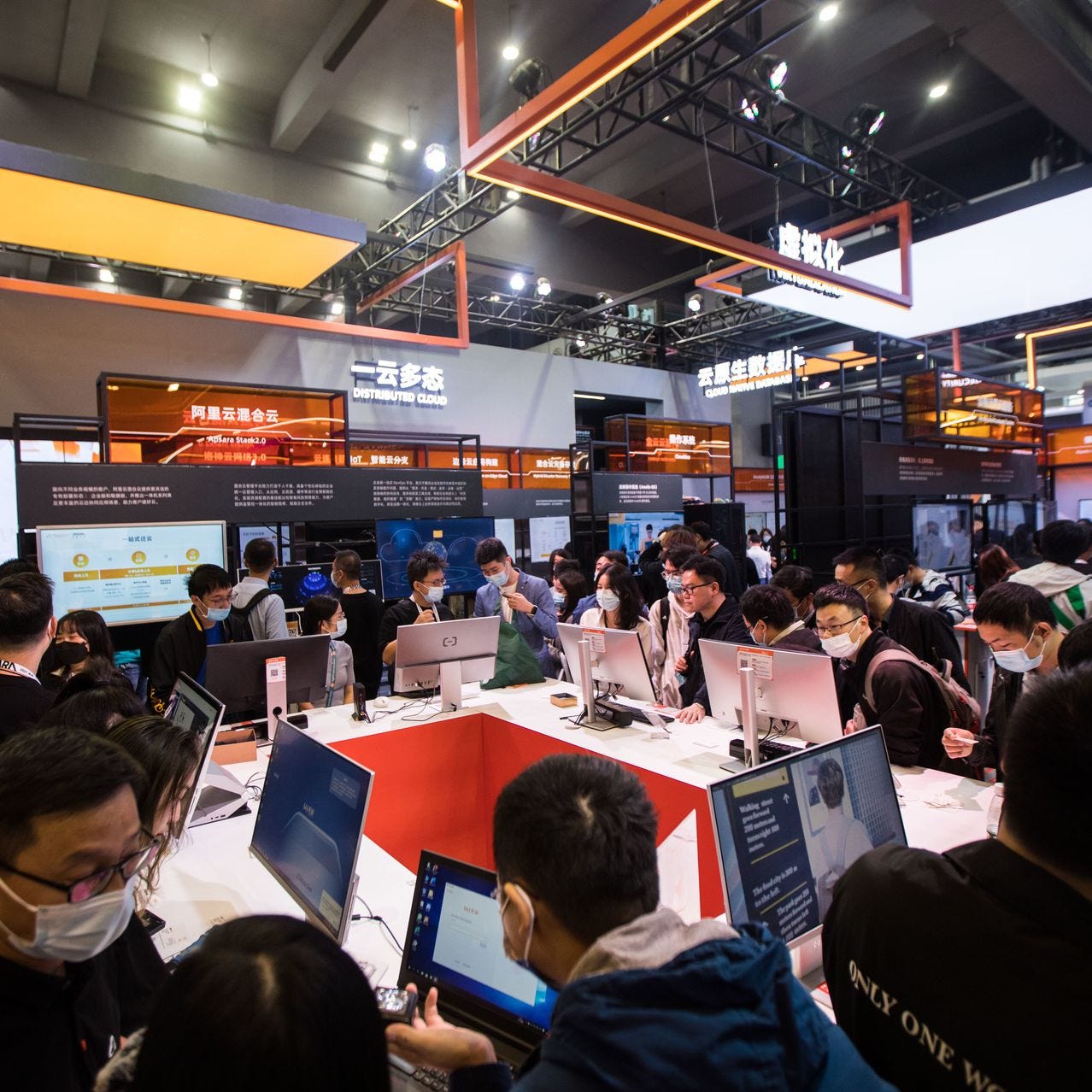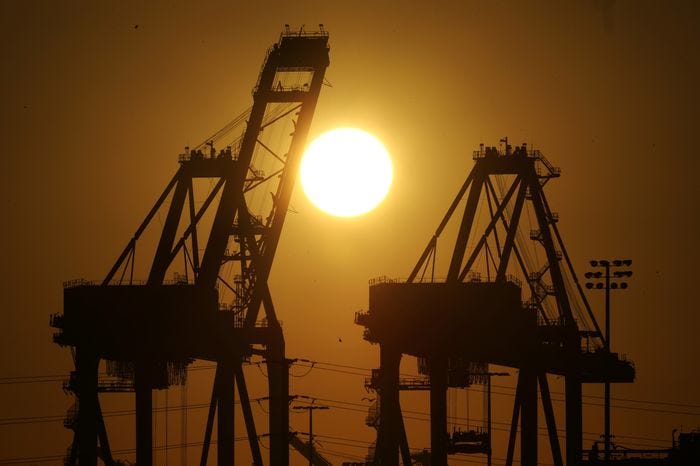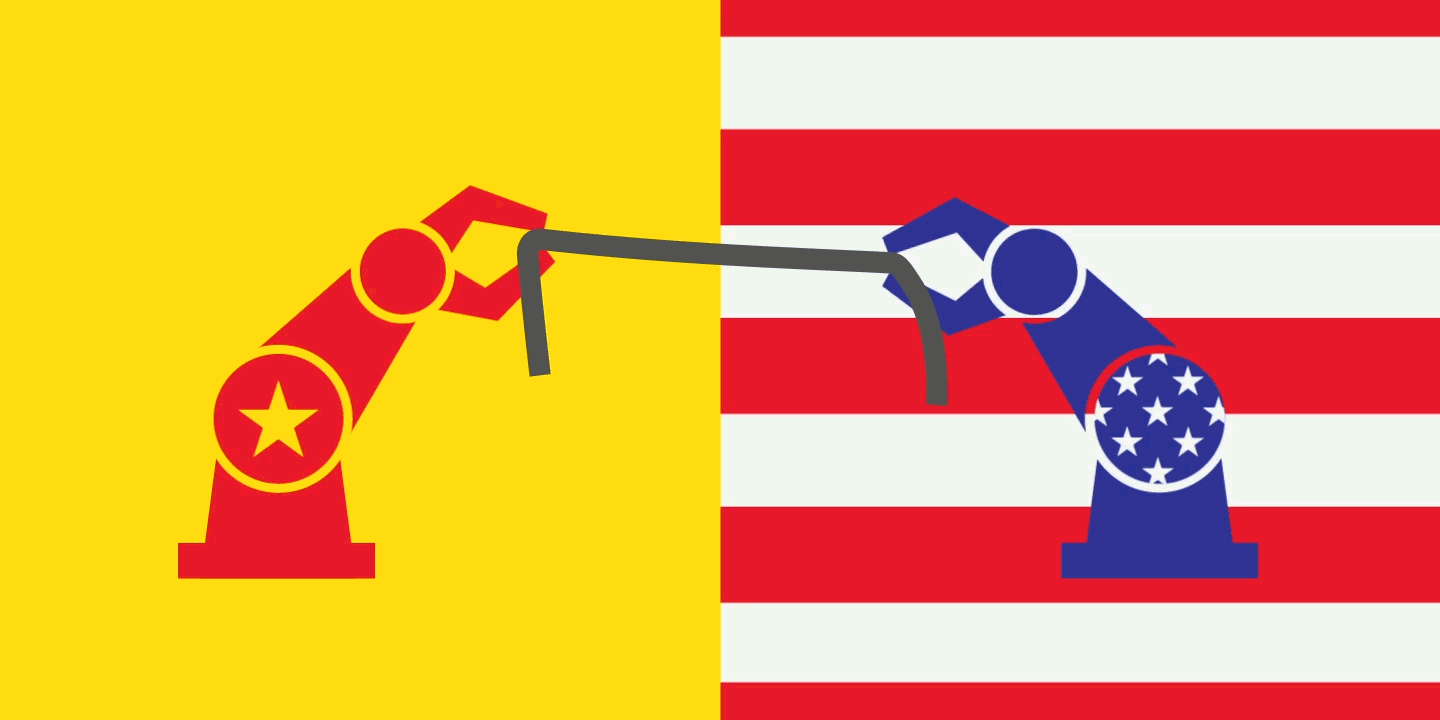Long-time readers here know I’ve advocated the US and China continue to ‘thread the needle’ in their mutual trade and geopolitical relationship, given the early days of the AI Tech Wave. This is particularly important around technology trading old and new, despite their growing tussles over a range of national security issues. Both countries seem to be trying to do both concurrently, with a step or two back every few weeks.
This is one of those weeks with a step or two back. The WSJ explains in “China Intensifies Push to ‘Delete America’ From Its Technology”:
“A directive known as Document 79 ramps up Beijing’s effort to replace U.S. tech with homegrown alternatives.”
“For American tech companies in China, the writing is on the wall. It’s also on paper, in Document 79.”
“The 2022 Chinese government directive expands a drive that is muscling U.S. technology out of the country—an effort some refer to as “Delete A,” for Delete America.”
“Document 79 was so sensitive that high-ranking officials and executives were only shown the order and weren’t allowed to make copies, people familiar with the matter said. It requires state-owned companies in finance, energy and other sectors to replace foreign software in their IT systems by 2027.”
“American tech giants had long thrived in China as they hot-wired the country’s meteoric industrial rise with computers, operating systems and software. Chinese leaders want to sever that relationship, driven by a push for self-sufficiency and concerns over the country’s long-term security.”
“The first targets were hardware makers. Dell, International Business Machines and Cisco Systems have gradually seen much of their equipment replaced by products from Chinese competitors.”
“Document 79, named for the numbering on the paper, targets companies that provide the software—enabling daily business operations from basic office tools to supply-chain management. The likes of Microsoft and Oracle are losing ground in the field, one of the last bastions of foreign tech profitability in the country.”
“The effort is just one salvo in a yearslong push by Chinese leader Xi Jinping for self-sufficiency in everything from critical technology such as semiconductors and fighter jets to the production of grain and oilseeds. The broader strategy is to make China less dependent on the West for food, raw materials and energy, and instead focus on domestic supply chains.”
The whole piece is worth reading to understand the depth and breadth of the top-down efforts by the Xi government to shed its economy of US technology. Particularly tough will be replacing Microsoft’s software infrastructure, as the piece notes:
“Microsoft, the world’s biggest software provider, historically dominated computer operating systems in China. A Morgan Stanley poll of 135 chief information officers in China found that many expected the share of computers powered by Microsoft’s Windows operating system installed in their companies to fall over the next three years. They expected Linux-based UOS, or Unity Operating System, an effort co-led by a state-owned company, to gain in the shift.”
“Domestically developed alternatives are growing more user-friendly. A local official recalled how in 2016, it took a whole day to open and close a spreadsheet on a computer with an operating system known as KylinOS, developed by a Chinese military-linked company. He compares the usability of the latest KylinOS version to Microsoft’s Windows 7, introduced in 2009—workable if not great.”
“Even as Microsoft’s top executives and its co-founder Bill Gates have frequently traveled to Beijing for high-profile meetings with senior Chinese leaders on subjects like cooperation on AI and U.S.-China trade relations in recent years, the company has decreased its offerings in China. Microsoft President Brad Smith said in a subcommittee hearing last September that China made up just 1.5% of the company’s overall sales. The company posted sales of $212 billion in the last fiscal year.”
On the US front, the China security paranoia now extends to Chinese cranes in US ports. Again, as the WSJ explains in a separate piece “Espionage Probe Finds Communications Device on Chinese Cranes at U.S. Ports”":
“Lawmakers’ discovery has fueled worries in Washington that the China-built equipment could be a national-security threat at America’s ports.”
“A congressional probe of Chinese-built cargo cranes deployed at ports throughout the U.S. has found communications equipment that doesn’t appear to support normal operations, fueling concerns that the foreign machines may pose a covert national-security risk.”
“The installed components in some cases include cellular modems, according to congressional aides and documents, that could be remotely accessed.”
“The discovery of the modems by lawmakers, which hasn’t been previously reported, has added to concerns in Washington about port security and China. The Pentagon and intelligence officials at other agencies in the Biden administration have grown increasingly alarmed by the potential threat of disruption and espionage presented by the giant cranes built by ZPMC, a China-based manufacturer that accounts for nearly 80% of ship-to-shore cranes in use at U.S. ports.“
Ironically, all this is occurring in both countries just as many Big Tech ‘Magnificent 7’ companies are increasingly benefiting from the billions in marketing spend by Chinese ecommerce companies like Temu, Shein and others. The WSJ highlights this in “Temu’s Push Into America Pays Off Big Time for Meta and Google”:
“The e-commerce platform’s parent company spent nearly $2 billion at Meta last year and it was a top advertiser at Google.”
The US and China are co-dependent on tech and trade for years to come. These unilateral actions to curtail these trade links are likely to have more unintended negative consequences for both parties than currently calculated by the politicians on both sides. And this goes beyond a smaller economic pie for all parties concerned. And the balkanization of technology and AI platforms for billions of users worldwide is also likely to diminish the overall AI Tech Wave opportunities relative to prior technology waves.
Our best tech companis like Apple, Nvidia, and many others have big marbles at stake in these political tussles.
Here’s hoping the next set of moves by either side is in the direction of continuing to ‘thread the needle’ on the tech and trade front. And both sides don’t take all their tech marbles home. Stay tuned.
(NOTE: The discussions here are for information purposes only, and not meant as investment advice at any time. Thanks for joining us here)





